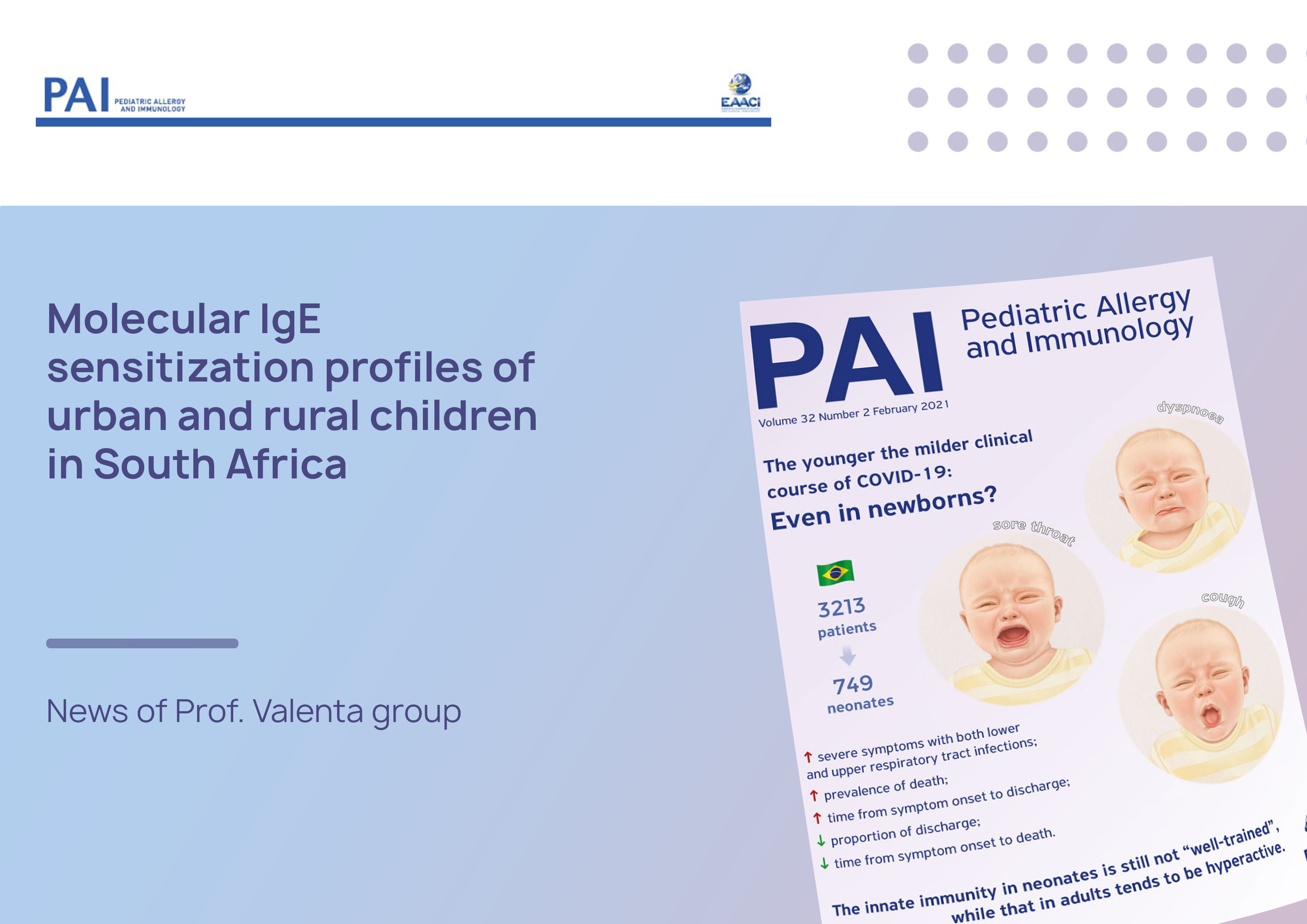Molecular IgE sensitization profiles of urban and rural children in South Africa.
Mittermann I, Dzoro S, Gattinger P, Botha M, Basera W, Facey-Thomas HE, Gaunt B, Genuneit J, Gray CL, Hlela C, Flicker S, Lunjani N, Mankahla A, Ramjith J, Valenta R, Levin ME. Pediatr Allergy Immunol. 2021 Feb;32(2):234-241.
doi: 10.1111/pai.13377.
Abstract
Background
Allergens can act as disease-triggering factors in atopic dermatitis (AD) patients. The aim of the study was to elucidate the molecular IgE sensitization profile in children with and without AD living in urban and rural areas of South Africa.
Methods
Specific IgE reactivity was assessed in 166 Black South African children aged 9-38 months using a comprehensive panel of microarrayed allergens. According to clinical characterization children fell in four groups, urban AD cases (n = 32), urban controls (non-AD, n = 40), rural cases (n = 49) and rural controls (non-AD, n = 45).
Results
IgE reactivity to at least one of the allergens was detected in 94% of urban and 86% of rural AD children. House dust mite (HDM; 81% urban, 74% rural AD) and animal-derived allergens (50% urban, 31% rural AD) were the most frequently recognized respiratory allergens, whereas IgE to pollen allergens was almost absent. Urban AD children showed significantly higher frequency of IgE reactivity (50%) to mouse lipocalin, Mus m 1, than rural AD children (12%). The most frequently recognized food allergens were from egg (63% urban, 43% rural AD), peanut (31% vs 41%), and soybean (22% vs 27%), whereas milk sensitization was rare. α-gal-specific IgE almost exclusively occurred in rural children (AD: 14%, non-AD: 49%).
Conclusion
Molecular allergy diagnosis detects frequent IgE sensitization to HDM, animal but not pollen allergens and to egg, peanut, and soy, but not milk allergens in African AD children. Urban AD children reacted more often to Mus m 1, whereas α-gal sensitization is more common in rural children likely due to parasite exposure.




